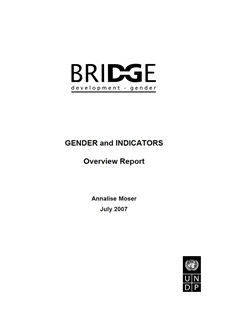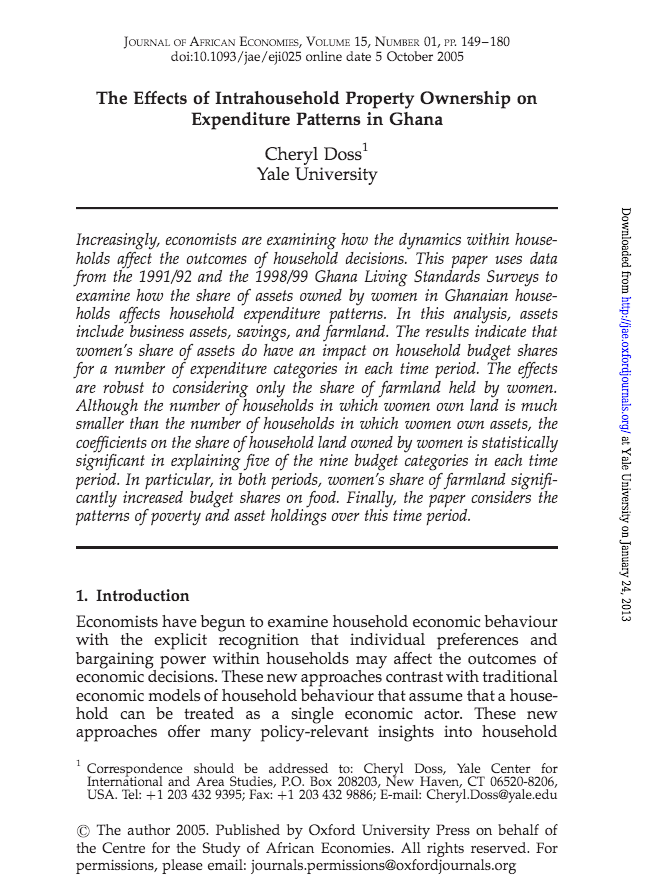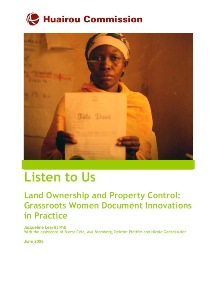Gender and Indicators Cutting Edge Pack - Overview Report
[From the BRIDGE website] This Overview Report explains what is meant by gender-sensitive indicators and measurements of change; makes the case for gender-sensitive measurements; and outlines how to go about measuring in practice. It includes sections that focus on measuring the impact of gender mainstreaming and on assessing specific areas of gender inequality - such as gender-based violence or the gender dimensions of poverty. A range of international measurement instruments are discussed, including widely recognised goals and indices, as well as innovative new approaches.









